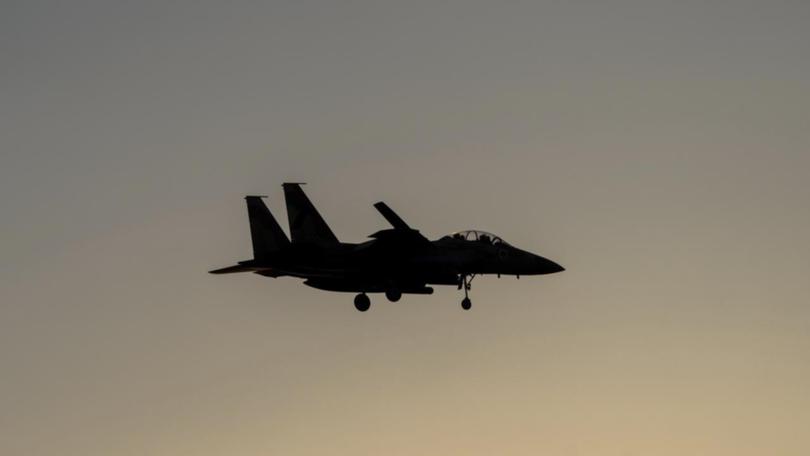Allies urge Israel to show restraint over Iran's drone attack

Israel has faced growing pressure from allies to show restraint and avoid an escalation of conflict in the Middle East as it considers how to respond to Iran’s weekend missile and drone attack.
Prime Minister Benjamin Netanyahu summoned his war cabinet for the second time in less than 24 hours, a government source said.
Two top officials signalled on Sunday that retaliation was not imminent and Israel would not act alone but the results of Monday’s talks were not yet known.
Sign up to The Nightly's newsletters.
Get the first look at the digital newspaper, curated daily stories and breaking headlines delivered to your inbox.
By continuing you agree to our Terms and Privacy Policy.Iran’s attack has increased fears of open warfare between Israel and Iran, and heightened concerns that violence will spread further in the region.
Wary of the dangers, US President Joe Biden has told Netanyahu the United States will not take part in any Israeli counter-offensive against Iran.
Since the start of the war in Gaza on October 7, clashes have erupted between Israel and Iran-aligned groups in Lebanon, Syria, Yemen and Iraq, and Israel said four of its soldiers were wounded hundreds of metres inside Lebanese territory overnight.
It appeared to be the first such incident to become known since the Gaza war erupted, leading to months of exchanges of fire between Israel and Lebanon’s armed group Hezbollah.
“We’re on the edge of the cliff and we have to move away from it,” Josep Borrell, the EU’s High Representative for Foreign Affairs and Security Policy, told Spanish radio station Onda Cero.
“We have to step on the brakes and reverse gear.”
French President Emmanuel Macron, German Chancellor Olaf Scholz and UK Foreign Secretary David Cameron made similar appeals, all echoing calls for restraint by the US and United Nations Secretary-General Antonio Guterres.
Countries including Belgium and Germany summoned the Iranian ambassadors.
Russia has refrained from criticising its ally Iran in public over the strikes but expressed concern about the risk of escalation on Monday and also called for restraint.
“Further escalation is in no one’s interests,” Kremlin spokesman Dmitry Peskov said.
Iran launched the attack over a suspected Israeli air strike on its embassy compound in Syria on April 1 that killed seven Iranian Revolutionary Guards officers including two senior commanders.
The weekend attack, involving more than 300 missiles and drones, caused only modest damage in Israel and no deaths.
Most were shot down by Israel’s Iron Dome defence system and with help from the US, UK, France and Jordan.
Italy, which holds the rotating presidency of the Group of Seven major democracies, raised the possibility of the G7 discussing new sanctions against Iran following the attack.
In an interview with Reuters, Italian Foreign Minister Antonio Tajani said new sanctions would need the backing of all the G7, which includes Italy, France, Germany, Canada, Japan, the United Kingdom and the United States.
He suggested any new measures would be focused on individuals rather than whole countries.
“If we need to have more sanctions for people clearly engaged against Israel, supporting for example terrorism, supporting Hamas, it is possible to do it. But we need to be very serious and to work all together,” Tajani said.
Asian shares fell and gold prices rose on Monday as risk sentiment took a hit.
But oil prices dipped and Israel’s shekel rose against the US dollar after the comments by two senior Israeli officials - Defence Minister Yoav Gallant and centrist minister Benny Gantz - suggesting an Israeli response was not imminent.
Israel remained on high alert but authorities lifted some emergency measures that had included a ban on some school activities and caps on large gatherings.
Iranian Foreign Minister Hossein Amirabdollahian said his country had informed the United States that the attack on Israel would be limited and for self-defence, and that regional neighbours had been informed of the planned strikes 72 hours in advance.
Iranian Foreign Ministry spokesman Nasser Kanaani said on Monday, however, that no pre-arranged agreement was made with any country prior to the weekend attack.
US officials said Iran had not warned the United States.
